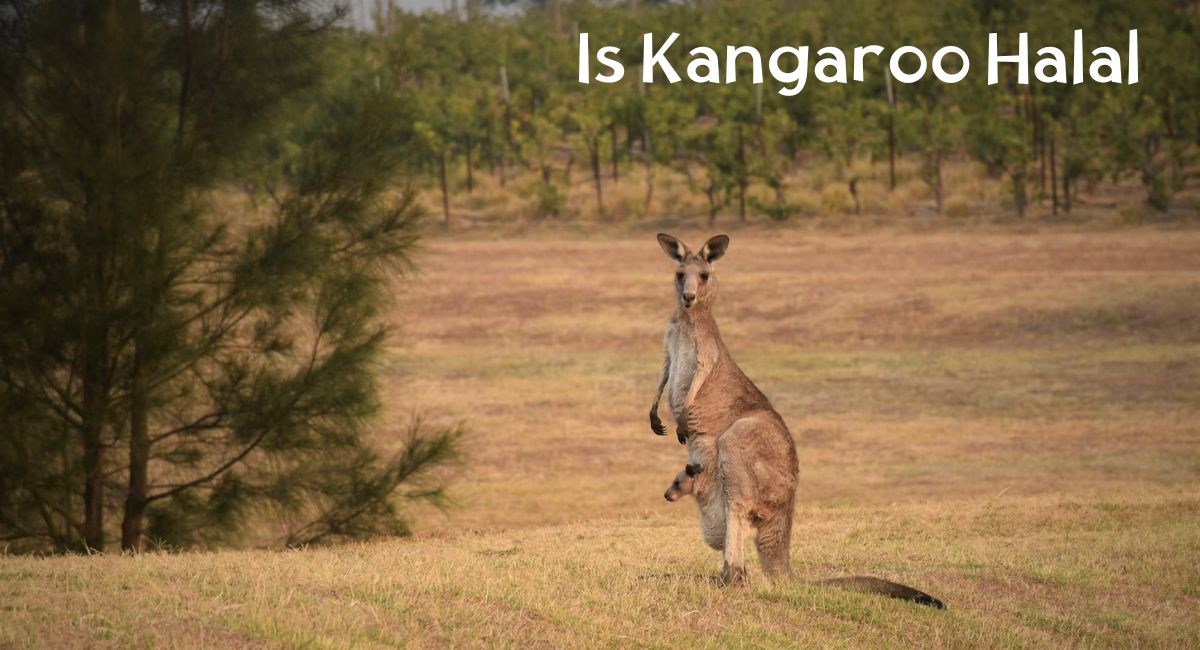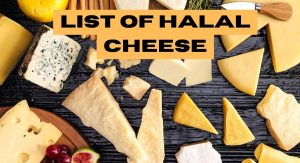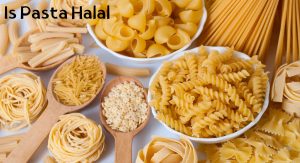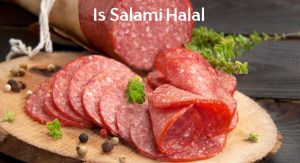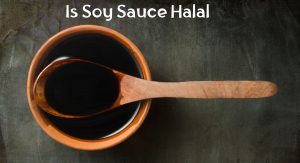Kangaroo meat has gained attention as a unique and sustainable alternative in the culinary world, particularly in regions like Australia where the iconic marsupial roams abundantly. As the demand for diverse halal food options continues to grow, questions arise regarding the permissibility of consuming kangaroo meat according to Islamic dietary guidelines.
To determine whether kangaroo meat is halal or not, it is essential to explore the factors that influence the halal status of an animal product. This article aims to delve into this intriguing topic, examining the key considerations involved in determining the halal status of kangaroo meat and shedding light on the opinions and rulings of Islamic scholars in this regard.
About Kangaroo and Kangaroo Meat: Nutritional Value and Taste
Kangaroos are truly unique animals and are iconic to Australia. These marsupials can be found throughout the country, from the arid outback to coastal regions. They have adapted remarkably well to life on the dry continent, withstanding temperatures that regularly exceed 100 degrees Fahrenheit and surviving on a diet of tough, fibrous vegetation.
Kangaroos are known for their distinctive hopping gait, which is not only energy-efficient but also allows them to travel long distances at high speeds. In addition to their powerful legs, kangaroos have muscular tails that they use for balance while hopping.
In addition to being impressive athletes and highly adaptable grazers, kangaroos also play an important role in Australian ecosystems. As herbivores, they help maintain the balance between plant growth and herbivory by consuming large amounts of vegetation while avoiding overgrazing any one area. Their grazing habits also help prevent wildfires by reducing fuel loads on the ground.
In recent years, kangaroo meat has gained popularity as a sustainable and healthy protein source. This trend is largely due to the fact that it is low in fat content with less than 2% fat on average compared to beef which can have up to 15% fat.
It also contains high levels of protein with roughly 26g per 100g serving. Kangaroo meat also contains important minerals such as iron and zinc which may contribute positively towards overall health benefits for consumers seeking a nutrient-rich diet.
With its unique flavor profile and versatility in cooking styles across various cuisines, kangaroo meat offers a delicious alternative for those looking for something new while taking into consideration ethical considerations around animal welfare concerns associated with traditional livestock farming practices.
Is Kangaroo and Kangaroo Meat Halal?
Based on various Islamic rulings and fatwas provided by various sources, including Islamic scholars and websites, Kangaroo meat is generally considered Halal for consumption in Islam.
“Forbidden to you (for food) are Al-Maytatah (the dead animals – cattle-beast not slaughtered), blood, the flesh of swine, and the meat of that which has been slaughtered as a sacrifice for others than Allah, or has been slaughtered for idols, etc., or on which Allah’s Name has not been mentioned while slaughtering, and that which has been killed by strangling, or by a violent blow, or by a headlong fall, or by the goring of horns – and that which has been (partly) eaten by a wild animal – unless you are able to slaughter it (before its death) – and that which is sacrificed (slaughtered) on stone altars…”
Surah al-Ma’idah: 3
This passage is from Surah al-Ma’idah, which is the fifth chapter of the Quran. It addresses dietary restrictions and specifies certain types of food that are prohibited for consumption by Muslims. Here is the explanation of the mentioned restrictions:
- Forbidden are Al-Maytatah: This refers to animals that have died naturally or without proper Islamic slaughtering. Muslims are required to consume meat from animals that have been slaughtered according to specific guidelines outlined in Islamic law.
- Blood: The consumption of blood is prohibited in Islam. This includes both the blood of animals and human blood.
- The flesh of swine: Pork, including the flesh of pigs and any food products derived from pigs, is forbidden for Muslims.
- Meat sacrificed for others than Allah: This refers to animals that have been slaughtered as a sacrifice to anyone other than Allah, such as idols or deities.
- Meat on which Allah’s Name has not been mentioned while slaughtering: Muslims are instructed to mention the name of Allah while slaughtering an animal for consumption. If the name of Allah is not invoked, the meat is considered forbidden.
- Animals killed by strangling, violent blow, headlong fall, or goring of horns: Animals that have been killed by these methods are not permissible for consumption. The emphasis is on ensuring that the animal is slaughtered in a humane manner.
- Animals partly eaten by a wild animal: If an animal is partially consumed by a wild animal before being slaughtered by humans, it is prohibited for consumption, except in cases where the person is able to slaughter the animal before its death.
- Animals sacrificed on stone altars: This refers to animals that are slaughtered as a sacrifice on altars made of stones for non-Islamic rituals or practices. Such meat is prohibited for Muslims to consume.
These dietary restrictions are part of Islamic dietary laws known as Halal, which outline what is permissible and forbidden for Muslims to eat. The purpose of these restrictions is to promote cleanliness, health, and spiritual well-being among Muslims.
Moreover, in the below hadith, it is mentioned that the Prophet prohibited the consumption of two categories of animals: fanged beasts of prey and birds with talons.
“Fanged beasts of prey” refer to carnivorous animals that have teeth designed for tearing flesh, such as lions, tigers, wolves, and similar creatures. The prohibition on consuming these animals implies that Muslims are advised to avoid eating the meat of such animals.
“Birds having talons” refers to birds of prey that possess sharp claws or talons used for capturing and killing their prey, such as eagles, hawks, and falcons. Similar to the prohibition on fanged beasts of prey, this implies that Muslims are discouraged from consuming the meat of such birds.
Allah’s Messenger (May the peace and blessings of Allah be upon him) prohibited the eating of all fanged beasts of prey, and all the birds having talons
Sahih Muslim No. 1934
Based on all of the above mentioned rules, land animals that have flowing blood, survive on grass and leaves, and do not prey on other animals are Halal to consume. Therefore, it can be said that it is permissible to consume Kangaroo meat.
However, it is important to note that for Kangaroo meat to be considered Halal, it must be slaughtered in accordance with Islamic guidelines and requirements, which includes the recitation of the name of Allah at the time of slaughtering and ensuring that the animal is in good health before being slaughtered.
It is also important to ensure that the meat is not sourced through commercial hunting, as this may not meet the Islamic guidelines for slaughtering, and thus render the meat Haram or not Halal.
Health Benefits of Kangaroo Meat
There’s a lot of buzz around kangaroo meat in recent years, with many curious about its health benefits. But is kangaroo meat really worth the hype? The search results strongly suggest yes! In this blog post, we’ll dive into the numerous health benefits of kangaroo meat, backed by research.
From its high protein content to its low-fat levels, valuable B-group vitamins, and conjugated linoleic acid (CLA), we’ll explore its properties in detail. Read on to find out why kangaroo meat deserves a spot in your healthy protein choices.
- A Low-Fat, High-Protein Source: Kangaroo meat is an excellent source of protein, with significantly lower fat levels compared to other meats such as beef. With a fat content of approximately 2%, it’s an excellent choice for those looking to manage their body weight or reduce their fat intake. Not only is kangaroo meat low in fat, but it’s also substantially cheaper than beef mince, making it an affordable option for those on a budget.
- Rich in B-Group Vitamins: Apart from being low in fat and reasonably priced, kangaroo meat is rich in B-group vitamins, particularly vitamin B12 and vitamin B6. Vitamin B12 is essential for producing red blood cells and maintaining the nervous and immune systems, while vitamin B6 promotes brain function and maintains immunity. One hundred grams of kangaroo meat contains roughly 70% of the daily recommended intake for vitamin B12 and around 12% of vitamin B6, making it an excellent source of these vital nutrients.
- High Concentration of CLA: Kangaroo meat’s most notable quality is its high concentration of conjugated linoleic acid (CLA). CLA is a fatty acid that has been attributed to several health benefits such as reducing the risk of cancer, cardiovascular disease, and helping with weight loss. Kangaroo meat is rich in CLA, with up to five times higher levels than beef and lamb. A study conducted by Monash University in Australia found that consuming kangaroo meat instead of beef or lamb regularly could reduce the risk of cardiovascular disease, diabetes, and even certain types of cancer.
- Excellent Source of Iron and Zinc: In addition to being beneficial for weight management, vitamins, and antioxidants, kangaroo meat is also an excellent source of iron and zinc. Iron is essential for carrying oxygen to the body’s cells and tissues, while zinc is vital for maintaining healthy immune function, DNA synthesis, and wound healing. Kangaroo meat has high levels of these micronutrients, making it an excellent choice for those who have a higher risk of iron or zinc deficiency.
However, it’s important to note that kangaroo meat may not be suitable for everyone. Some researchers have found an association between the excessive consumption of L-carnitine, a compound found in red meat, with the formation of arterial plaque leading to heart disease, strokes, and heart attacks. As a result, people who are at risk of cardiovascular disease may want to consult their healthcare provider before consuming kangaroo meat or any red meat product.
How to Cook Kangaroo Meat?
Kangaroo meat is a highly nutritious and lean meat that has gained popularity as a healthier and more sustainable alternative to traditional meats. However, many people are unsure about how to cook this meat properly. There are various ways to cook kangaroo meat, each suited to a different preparation style. Here are some popular methods:
- Grilling: Kangaroo meat can be grilled directly over high heat for a few minutes on each side until rare or medium-rare. As this meat is quite lean, it is best not to overcook it, as it can become tough and dry.
- Pan-searing: Heat a non-stick pan with oil and season the kangaroo steak with salt, pepper, and herbs. Sear the meat on high heat for around two minutes on each side to develop a crust, then lower the heat and continue cooking to the desired doneness. This method is great for cooking kangaroo steaks.
- Slow-cooking: Kangaroo meat can be cut into chunks and used in slow-cooked dishes such as curries and stews. Its unique flavor profile pairs well with aromatic spices and herbs like coriander, cumin, and paprika.
- Boiling: In a pot, brown the kangaroo meat in oil, then add water and bring it to a boil. Reduce the heat and simmer for ten minutes, then remove from the heat and let it rest for five minutes before slicing. This method is perfect for making broth or soup, as well as dishes like bolognese sauce.
- Other tips: Kangaroo meat is very lean, so be careful not to overcook it or it may become tough. It is also recommended to marinate the meat beforehand to add flavor and tenderize it. Popular marinade ingredients include garlic, soy sauce, vinegar, and spices.
It is important to handle the meat carefully to avoid overcooking and to marinate it beforehand for added flavor and tenderness. Kangaroo meat is a great meat alternative that is not only sustainable but high in protein, low in fat, and full of flavor. With these tips and methods, you can confidently prepare kangaroo meat in any dish and enjoy its unique taste.
Read these comprehensive guides to know everything you need to know about the halal status of various game meats.
Is Elephant Halal: Curious about the halal status of elephant meat? Dive into this informative article on Halal Haram World to learn more about it.
Is Rabbit Meat Halal: Delve into the question of whether rabbit meat is permissible in Islam. Check out the comprehensive guide on Halal Haram World for insights.
Is Alligator Meat Halal: Wondering if alligator meat aligns with halal dietary guidelines? Read this article on Halal Haram World to get the answers you seek.
Are Crocodiles Halal: Explore the halal status of crocodile meat in this informative article on Halal Haram World. Find out if it’s considered permissible.
Is Turtle Meat Halal: Learn about the halal status of turtle meat and whether it’s suitable for consumption within Islamic dietary principles. Read the article on Halal Haram World for details.
Is Deer Halal: Is deer meat halal or not? Get the complete picture by reading the article on Halal Haram World, which provides insights into the halal status of deer meat.
Frequently Asked Questions
1. Is kangaroo meat legal in the US?
The legality of kangaroo meat in the United States appears to be a subject of debate and varying regulations. In February 2021, a bill was introduced in the US Congress to halt the importation of kangaroo skins and meat. However, it is unclear whether this bill has been passed into law or what its current status is. However, in California, the state law prohibits the sale and consumption of kangaroos. It is therefore advisable to consult local laws and regulations in the specific state or region of interest to determine the legality of kangaroo meat consumption or trade.
2. Is kangaroo meat healthy?
Yes, kangaroo meat is generally considered to be a healthy option. It is lean and low in fat, making it a good choice for those looking to reduce their fat intake. It is also a good source of protein, iron, and zinc. A 150-gram piece of cooked kangaroo meat provides approximately 6.3g of iron and 5.4g of zinc. Moreover, compared to traditional red meats like beef and lamb, kangaroo meat is also considered a lean red meat with low saturated fat content. This can be beneficial for individuals seeking to maintain a healthy diet.
3. What does kangaroo meat taste like?
Kangaroo meat is often described as having a unique and gamey flavor. It is typically compared to beef, venison, lamb, and other game meats. The taste can be robust, bold, and earthy, with some describing it as stronger in flavor than beef or lamb.
4. What type of meat is kangaroo?
Kangaroo meat is considered red meat. Red meat is generally categorized as meat from mammals, such as beef, pork, and lamb, that is darker in color when raw and contains higher amounts of myoglobin, a protein responsible for the red color. The color is influenced by the kangaroo’s diet, which consists mostly of grasses.
5. What goes well with kangaroo meat?
Kangaroo meat has a bold, savory, and earthy flavor that can be complemented with a variety of flavors. It is versatile and and pairs well with red wine. According to Dish Pairing, some of the best flavors that go well with kangaroo meat are garlic, rosemary, juniper, mountain pepper or pepper, and fruity flavors such as plum, red currant, quandong, or orange. Some chefs like to bring a Mexican flavor profile to kangaroo by preparing it with paprika, garlic, and thyme and serving it with chargrilled corn on the cob, avocado, coriander, and a delicious charred lime dressing made with lime, buttermilk, and extra virgin olive oil.
6. What is the best cut of kangaroo meat?
The best cuts of kangaroo meat are the loin, backstrap, and fillet, as they are tender and easy to cook. These cuts can be served as steaks or used in stir-fries, curries, or stews. The leg or rump cut of kangaroo is tougher and has a gamier flavor, but can be used in slow-cooked dishes such as stews or roasts. Kangaroo mince is also a popular choice as a low-fat alternative to beef mince.
